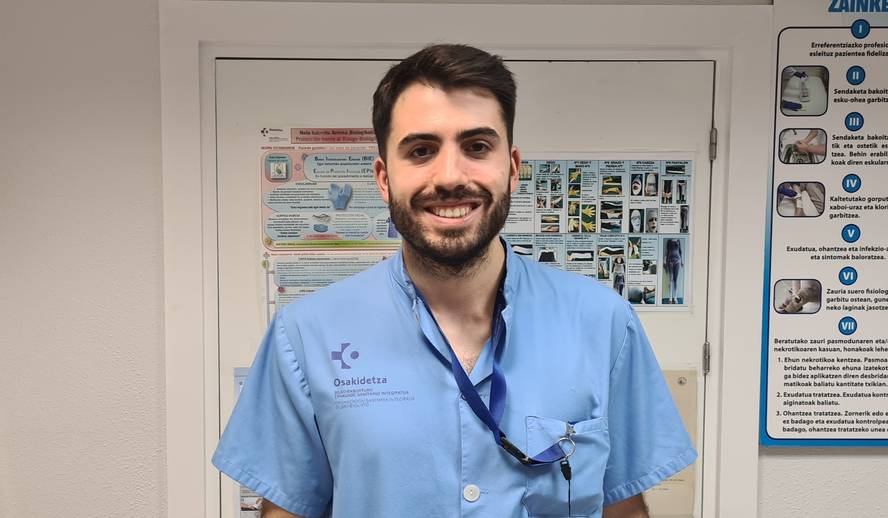“Age is more widespread than sexism and racism”
Borja Doncel García is a nurse, researcher and professor. Still, most of the translators of articial intelligence translate the nurse into a female, for example to Spanish: the nurse. Doncel makes it clear that in nursing and in Osakidetza women are the majority. But this wasn't the time to choose the studies. “On the one hand I liked the health area, and on the other hand, nurses have a very close relationship with the patient and this closeness I really like. That’s why I chose nursing.”
He thus renounced stereotypes and, in fact, investigated the stereotypes in the trial, specifically the age or discrimination suffered by the elderly. “I made a Master in Healthy Aging and Quality of Life at the University of the Basque Country/Euskal Herriko Unibertsitatea and opted for old age in the final work, even in his doctoral thesis, because in recent years sexism and racism are being the focus of attention, but age is not so present,” explains Doncel. Although this age discrimination is less mentioned, Doncel also stresses that it is even more frequent than sexism and racism.
He adds that from a very young age you learn addiction. “Some texts say that these kinds of attitudes start learning at age 5, and as age grows. That’s why we think it’s very important to take action and interventions from school and home.”
However, they have found that most interventions against addiction are based on education, even intergenerational, usually with adolescents. And in them they have also seen a clear example of old age, as they are aimed at young people and not at the elderly. “It’s a bit ironic: in interventions to combat addiction, we exclude older people,” Doncel warns. Therefore, the intervention they performed was for the elderly.
Interventions against addiction at all ages
In recent times, however, age in the media, education and intervention is increasingly taken into account. It has very negative effects on the elderly, such as health, social isolation, autonomy… All this also entails a cost. “But also older people are increasingly listening to the end of old age, becoming more involved in anti-discrimination programmes and becoming more aware.”
The importance and effectiveness of interventions is therefore clear. On the other hand, considering that geriatrics is not an optional specialty, Doncel highlights the positive aspects of his work with the aim of attracting young people. On the one hand, it recalls the great heterogeneity among the elderly. “Relations with them are very varied.” On the other hand, in research, the path from the beginning to the results seems really nice: “Set an objective, then create a method, make an intervention, draw results and conclusions… You push this whole process forward and when you see that you can then apply it to society, it satisfies you a lot.”
It recognizes that health professionals also have prejudices towards the elderly, but the elderly are also entitled to good care. “In the end, we all want to become older.”






